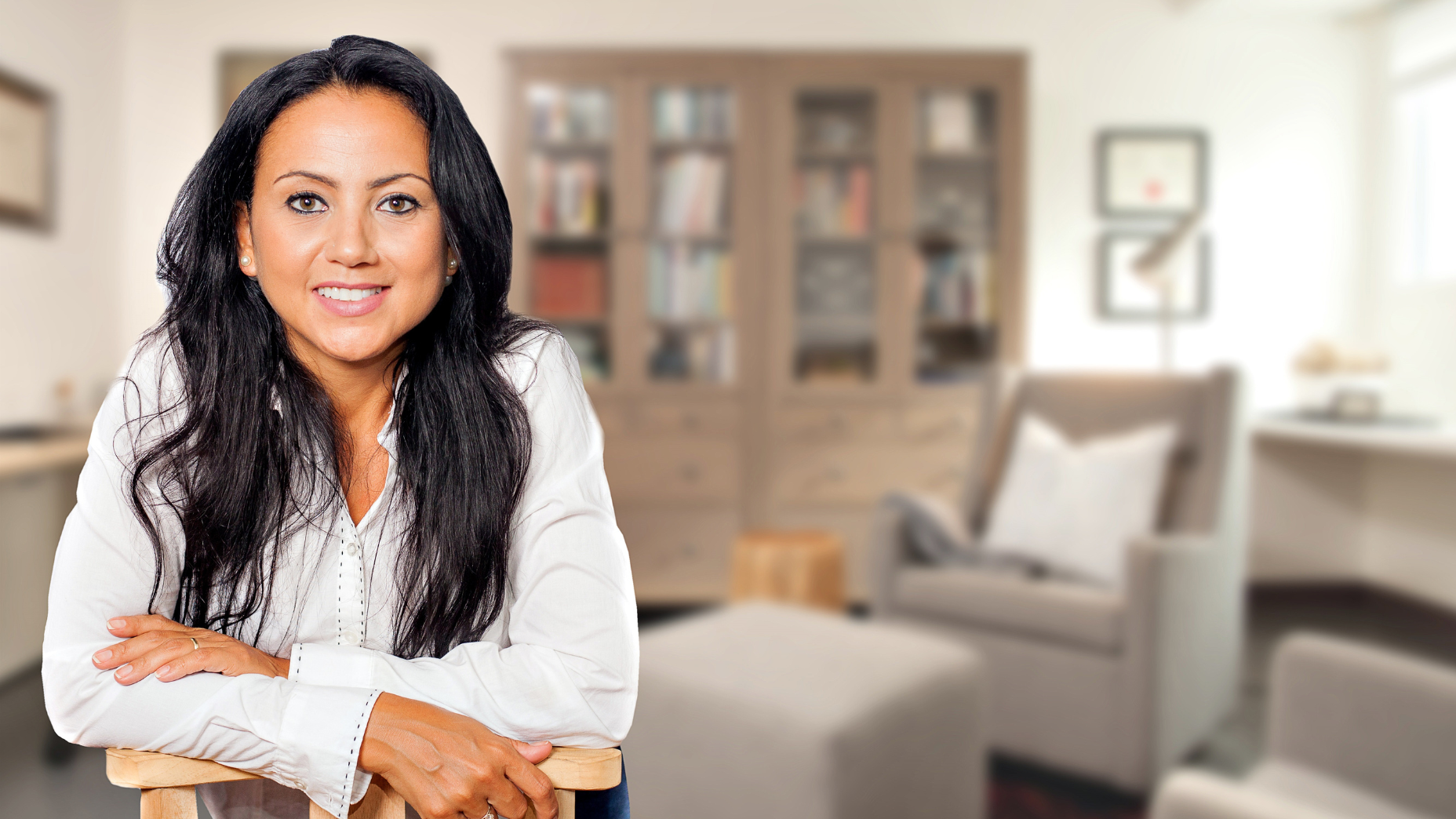Career Change in Your 20s or 30s
Making a career change in your 20s or 30s can be challenging. Or, if not challenging, it might be teensy bit scary! At this point, you’ve likely either earned a degree to work in what you thought would be your end-all-be-all career or you’ve been working in a specific field for years.
Now, you’re thinking about switching things up. And not in a casual way. You’re thinking about making a drastic professional change. It’s serious. A little too serious for your comfort level, maybe? I encourage you to stick with it - there’s a reason you’re thinking about it!
Perhaps there’s a small part of you that wonders if there might be something better out there for you. You don’t know what it is, but what if there really is something better suited for you?
This blog post will offer guidance on how to find your ideal career and walk you through how five members of the Global Grant Writers Collective made the career change from social work to grant writing.
How To Find Your Ideal Career
What is your ideal career and how do you find it? Talk about overwhelming, huh? Simply thinking about the sheer number of decisions I would need to make to answer that question are making my palms sweat. Bleh. Let’s try a different tactic.
I love to reframe big decisions into little decisions. I do it like this. I ask myself, “Alexis, what is your next right thing?”
That question is a variation of a line that many authors and speakers have used. I heard it first from Emily P. Freeman who has spent years talking and writing about decision fatigue, confident decision making, and how to determine the next right thing.
This question helps me to get out of my head. There is no need to be thinking 10 or 20 years down the road or honestly, even 10 or 20 decisions down the road from this immediate moment.
I’m of the mindset that truly, deeply, in our bones, we know what is the best decision for us. Whether that’s calling it quits on a relationship or turning in our two-week notice or transitioning from exercising for weight loss to movement for joy, we know the right choice for ourselves.
As a social worker and person in the world, you know a lot. You’ve seen a lot. You’ve done a lot. If you haven’t heard this yet today: I’m grateful for you and the effort you’ve put in.
I say all that because you need to give yourself credit where credit is due. That confidence is necessary when you start toying with the idea that there might be a better career choice for you.

Dreaming Big
What do you want? Answer this quickly—before your imposter syndrome self takes the mic.
What else do you want? What is your passion? What kind of work do you enjoy doing? Why are you here, now, considering a career change? What don’t you want?
It can be helpful to see how others made moves to align their career with their lifestyles and values. I’m so grateful a few members of the Collective agreed to share their experiences!
When Kimberly Henry, LMSW of The GOLD Beacon, PLLC, started thinking about this, she realized she wanted to have a greater impact. “Although working one-on-one with trauma survivors is crucial in recovery of that trauma, I wanted to be a part of the bigger picture, preventing trauma from happening in the first place. Writing grants and developing nonprofits is a great way to do that.”
Sometimes, your life situation changes and necessitates a career change. Kate Elliott, MSW, is the Program and Grant Coordinator at Autism Society of Southern Arizona. She needed to step away from social work after having kids who required extra hands on from her while also caring for her parents who were both sick. “When my daughter got to the point where she was spending full days at school, I started thinking about what I could do as a career that would give me the flexibility that I needed but still allow me to be able to do good in the world.”
With a degree in journalism and a bit of experience with grants as a social worker, Kate decided to dive in further to the idea of becoming a grant writer. “This combination led me to grant writing as I saw it as a nice balance of still being involved in social service in some capacity but still having the flexibility I needed,” Kate said.
Watch Kate share her grant writing journey:
For Joey Stoyas, a grant writer
at MySpeech and MSW student, what led him to grant writing
was wanting to “improve the resources for people who stutter at the macro level to influence the quality of
resources at the mezzo and micro levels.”
Essentially, he was already doing work to support the stuttering community, he just wanted to do more of it and
make a bigger impact.
You Can Make Money as a Grant Writer
Similarities Between Social Work And Grant Writing
Needs Focused
At the end of the day, both fields require the identification, analysis, and addressing of a need. In grant writing, research prowess and strategic thinking are essential.
“Social work relies on research, connections, problem identification, and strategic solving of those problems,” Madison Hopkins, MSW said. “Social workers research therapeutic interventions, resources, and cultural norms at the micro-level to best serve their clients. On the Macro level, staff members analyze community patterns, deal in numbers and statistics, utilize a robust social network, and plan long-term multifaceted projects.”
Thinking Big Picture
Both social workers and grant writers must demonstrate cultural understanding and be sensitive to the people they’re working to serve. Diversity, equity, and inclusion (DEI) is a major focus of what we teach our grant writers. We encourage grant writers to ask: “how do I confront and unpack my own [racism, sexism, classism, saviorism, colonialism, religious prejudice, heteronormativism... to name a few] so that my work has a positive impact?”
Check out this blog post for more on why DEI matters as a grant writer:
“A good grant writer must also understand and respect the cultural needs of agencies, think dynamically about community characteristics, and have the social savvy to meet and work with a wide range of people,” Madison said.
Meredith’s book, How To Write a Grant: Become a Grant Writing Unicorn, dives even deeper into what Madison highlighted.
It is absolutely essential to a grant writer’s success to be aware of the many different stories at play in the communities they (or their clients) serve and across the funding landscape. Grant writers must also understand the bigger picture. Tapping into grant funding can be game-changing for nonprofits and communities. Grants literally help to change the world—one dollar and one community at a time.
“To a real social worker, a grant isn't just a way to get funding,” Kimberly said. “A grant demonstrates someone else's confidence and support in your efforts to make the world a better place. Sounds cheesy, but social workers know we are doing our best to improve this world. Being validated in the way of funding from an external organization speaks volumes.”
Neesa Sunar, LMSW, linked the two fields together by the knowledge required for both. “The common thread of these roles is that a social worker must be aware of community resources, political trends, and ethical practice to offer competent service. On a more personal level, such knowledge helps a social worker understand the complex lives of the people they serve, including the systemic barriers they face. Grant writing is a career that is excellently served by this same knowledge.”
Grant Writing Unicorn Book
#1 bestseller on Amazon for nonprofit fundraising and grants. Do you have a copy of, “How to Write a Grant: Become a Grant Writing Unicorn”?
Get a Copy Now
Firsthand Experience With The Needs
As a social worker, you have home court advantage in that you can personally bear witness to the actual work being done. You know what it looks like. Therefore, you can craft a narrative speaking directly to that effort and desired outcome.
“Social workers understand what working in social services is actually like. They have the opportunity to interact with the populations that they serve in a very unique way and work from the basis of meeting them where they are at,” Kate said.
When you can approach a grant application with hard won wisdom, it shows. Grant funders respond to that level of confidence and awareness. Neesa said that social work expertise lends to “the ability to read proposals and intuitively understand exactly how [funders] want to be approached”.
It’s also pretty likely that as a social worker, you’ve come close to grants or even grant writing. Whether your position is grant funded or the program you coordinate is, there’s no doubt about it: grants are everywhere in the field of social work. Simply put, the two fields pair nicely together.

Versatility
Both social workers and grant writers have lots of variety when it comes down to who they serve and what they actually do.
“Social work is a highly versatile field that places workers in a variety of contexts, whether it be as a clinical therapist in private practice, or perhaps at a community center,” Neesa said.
Or, perhaps one is a non-profit business administrator, a community organizer, or hospital staff that coordinates discharge of patients.”
Grant writing is a versatile field as well. Some grant writers choose to niche to only serving tribal organizations, writing SBIR grants, or specialize in one particular Federal grant program. Conversely, other grants writers may choose to never niche. They work with small and large organizations in all industries, from human services to agriculture.
“Although this advice may not be relevant in other sectors, it still bears an important concept: follow your passion,” Neesa said. “If you serve a population or sector that you inherently love, your clients will be more than clients. They can be people you learn and share with, where you mutually inspire one another. Inspiration is the bedrock of creativity, which is what leads to innovative solutions that address today's problems.”

Career Change From Social Work
Making the leap can be scary, so it’s important to revisit your decision making framework and remind yourself of what you ultimately want. This thought process will look different for everyone.
For Madison, the necessity for boundaries was a key motivator in her career change. As a Family Service Specialist for a state Division of Family Services, she experienced burnout and deep discouragement after merely one year.
“I took children from hospital rooms and their families' arms in the middle of the night to hand them over to strangers,” Madison said. “I listened while parents my age told me about the systems that hurt them. I watched the system fail. I didn’t feel capable of contributing positively to the people groups and institutions I passionately studied to serve. I quit with nowhere to go.”
When she was ready to serve others again, she returned to that absolute of needing boundaries to filter the idea of grant writing as her next career move.
“I've always wanted to help people, but as I grow and expand my family, I see that it is vital to have emotional, mental, and time boundaries around my pursuits,” Madison said. “At this point in my life, my ideal career is work that allows me to balance investing in my family and serving communities that I feel called to. It is dynamic scheduling that allows for balance and breaks when needed. It includes a community that encourages me to dream big, acknowledge my abilities and value, and reminds me that failure is okay.”
From a pragmatic standpoint, you need to know that learning grant writing and doing the work is not a cake walk. It’s not rocket science difficult, but it can be challenging at times. In the Global Grant Writers Collective, our curriculum is based on a tried and tested system to gain clients, write winning grants, and feel confident doing both. Essentially, if you work the system, the system works. Whether you choose to go the freelance and consulting route or to pursue employment, the Collective will be beneficial to you.
“I have only been grant writing for about a month, and I have found that grant writing is a skill that has opened many new doors for me as a social worker,” Joey said. “While grant writing is hard, it is incredibly worth the time and effort for social workers to learn grant writing.”
Differences Between Social Work And Grant Writing
Pay Difference
The elephant in the room, er, screen, here is pay. You know I had to go there!
It is extraordinarily reasonable for a grant writer to earn $5,000 a month. Keep in mind this is a conservative number. The average salary for a grant writer is $69,000. That average means there are people making less and people making more than $69,000 a year. In all honesty, I know grant writers who make $150,000 a year. When you choose to scale a consulting business, the sky truly is the limit.
According to the Bureau of Labor Statistics (BLS), the median annual salary for social workers is $50,390, as of May 2021.
“Social workers are notoriously underpaid, and the work is quite strenuous,” Neesa said. “There are times that one may want to transition to fee-for-service work as a clinician, working part-time, or perhaps step away from the career due to burnout. Grant writing is an excellent way to retain income in such times.”
Education Requirement
To operate as a social worker in the United States, you need a minimum of a bachelor’s degree. Oftentimes, social workers pursue further education to do more and unlock higher pay at their place of employment. Did you read that with dollar signs flashing in your mind? Yep, that education is a whole lot of cha-ching.
On top of that, social workers also may need a license; specific requirements vary by state. You guessed it, there is a fee to take the licensure exam.
For grant writing, you do not need to go to school and shell out tens of thousands of dollars. You can instead earn your grant writing certification through The Global Grant Writers Collective or take a self study course via Grant Writing: From Start to Funded.
A membership to the Collective offers beginner and advanced curriculum, community, and coaching while Start to Funded primarily features curriculum. At $3,000 per year and $750 per year respectively, both programs are a fraction of the cost of a degree. That and the Collective shows you how to make your money back in 4-6 months and then go on to 10x from there.
Schedule Flexibility
Most social workers are employed full time. They sometimes work evenings, weekends, and holidays to see clients or attend meetings, and they may be on call. The hours can be grueling, especially coupled with compassion fatigue and vicarious trauma.
According to a study done by social workers by Darcy Clay Siebert, PhD in 2006, there is a burnout rate of 39% and a lifetime burnout rate of 75% for social workers.
Sure, sometimes grant writers work evenings and weekends but that is usually because they took time off in the middle of the week! Why? Because they chose to. Grant writer Rose Hedberg lives abroad in Casa Blanca, Morocco and works Monday through Thursday. She takes Fridays off to travel. That’s the long and short of why she became a grant writer.
Full transparency: burnout is also possible for grant writers. Of course it is! In any profession, the risk of burnout is present. That’s why in our program, we work hard to emphasize the importance of taking regular breaks to support your health and feel energized by your work.
Is grant writing a good move for you? It is a top choice for many social workers considering a career change. That said, it’s not for everybody. The age old, annoying advice applies here still: it depends. If you’re considering making the switch, take a beat to truly reflect and consider your situation, strengths, weaknesses, likes, and dislikes.
“There are many, many, many different layers and elements of social work,” Kimberly said. “There are different forms, practices, and missions of social work and it is important for a social worker to identify what their passion is and why they are in the position to be considering a career change in the first place.”
Learn Grant Writing is not about just taking your money for the heck of it. From the bottom of our hearts, we want you to be wise and thoughtful with your money. We recognize making the investment in learning with us is significant and we don’t take that lightly. Our program also teaches you how to make your initial investment back quickly. That’s ultimately what we want: for you to experience financial success and have a lifestyle that brings you joy.
Take a few minutes to watch this video to learn more about if grant writing is a good fit for you.
“I think it’s a great option,” Kate said. “Social workers have a unique understanding of the nonprofit and social service world but that understanding comes with a lot of burn out that makes it a hard career to maintain for long. Grant writing offers the ability to use their knowledge to continue to engage in social service while providing a more sustainable lifestyle.”
“Grant writing is a macro-level option that pays well and allows social workers to work with a diverse clientele that interests social workers,” Joey said. “For instance, I was worried about not being able to find grant writing options within the stuttering community. But, once I began networking, I found many people to work with to expand resources for the stuttering community.”
Best Career Change For Social Workers
Is grant writing interesting to you? Does it have some of the elements you’re looking for?
You don’t need to go all in immediately if you’re not sure yet. In fact, even if you are sure, it’s wise to instead start pursuing grant writing as a side hustle. Get a feel for the work and pocket some extra cash on the side. Side hustling is the best of both worlds. Heck, we wrote a blog post all about why side hustling with grant writing is a killer strategic move.
Check it out here:
“If you're like me and the thought of changing careers is terrifying, consider grant writing another tool on your tool belt,” Madison said “After all, grant writing will allow you to impact individuals, families, communities, and systems using strategic planning and action. At a personal level, you make it your own.”
Final Takeaway
Change can be scary. Not changing can be even more frightening. If you’re looking for a career that is flexible, profitable, rewarding, and moves you closer to your dream lifestyle, grant writing might be it.
What do you think? Is grant writing your next right thing?
Free Grant Writing Class
Learn the 7-steps to write a winning grant application and amplify the impact you have on your community.
Access Free Class
Grant Writing Resources
Keep reading our blog articles. Specifically, this one talks about the perks of grant writing for stay-at-home moms and this one highlights how so many teachers have made the switch to grant writing.
Also, check out our FREE Class on Writing Grants in just 7 easy steps!
More questions? Shoot us a DM on Instagram! 🦄













